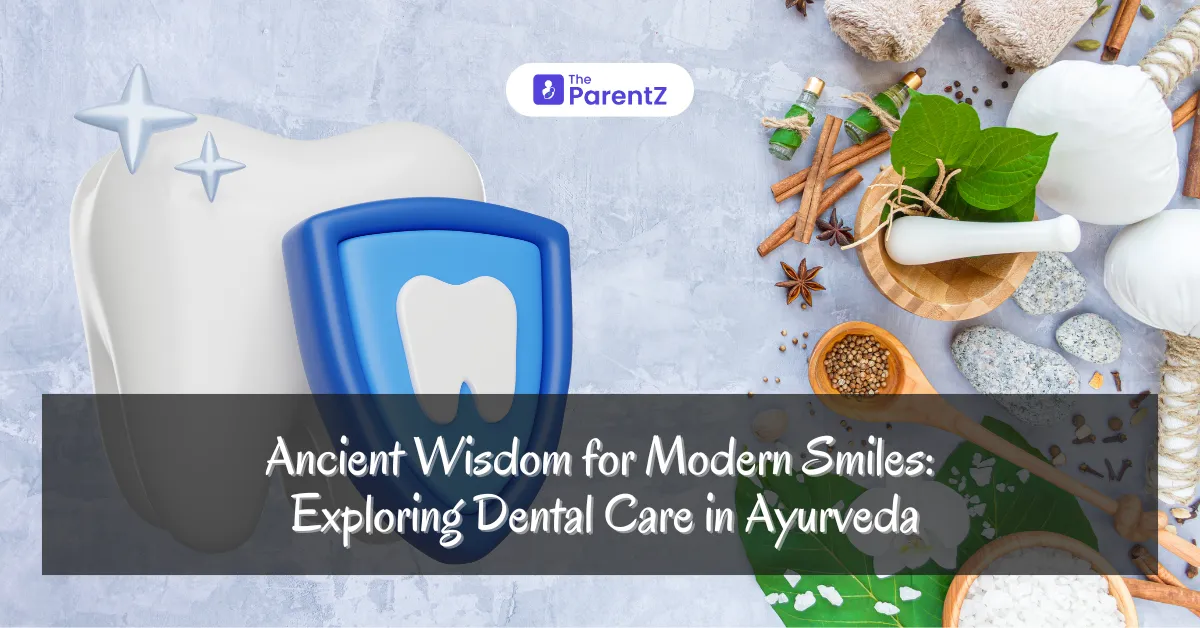Ayurveda, the ancient Indian system of medicine, offers a holistic approach to health that encompasses physical, mental, and spiritual well-being. Among its many practices, Ayurvedic dental care provides natural methods for maintaining oral hygiene and preventing dental issues. Modern research has begun to validate several of these traditional practices, highlighting their relevance in contemporary dental care. Maintaining your child's precious smile can be really difficult, don't worry our parenting guides have got you covered /parenting/sparkling-smiles-fun-dental-health-resolutions-for-kids-that-stick-all-year /health-nutrition/empowering-kids-to-make-smart-food-choices-for-a-lifetime-of-healthy-smiles
Ayurvedic Dental Practices
1. Oil Pulling (Kavala or Gandusha): This practice involves swishing oil, typically sesame or coconut, in the mouth for several minutes before spitting it out. It’s believed to draw out toxins, strengthen teeth and gums, and prevent bad breath. Studies suggest that oil pulling can reduce plaque formation and bacteria in the mouth, contributing to improved oral health.
2. Herbal Chewing Sticks (Datun): Before the advent of modern toothbrushes, people used twigs from specific plants like neem, licorice, or miswak to clean their teeth. These sticks possess antimicrobial properties that help prevent dental caries and gum diseases. Research indicates that such chewing sticks have medicinal and anti-cariogenic properties, supporting their traditional use in oral hygiene.
3. Tongue Scraping (Jihwa Prakshalana): Ayurveda recommends using a tongue scraper to remove the coating on the tongue’s surface, which can harbor bacteria and lead to bad breath. This practice is believed to enhance taste perception and overall oral cleanliness. While scientific evidence is limited, some studies suggest that tongue scraping can reduce oral bacteria and improve breath odor.
4. Herbal Mouth Rinses: Ayurvedic texts advocate the use of decoctions made from herbs like Triphala, neem, or licorice for rinsing the mouth. These herbal rinses are thought to possess antimicrobial and anti-inflammatory properties, aiding in the prevention of oral diseases. Modern studies have shown that such herbal formulations can be effective in reducing oral bacteria and inflammation.
Scientific Validation of Ayurvedic Dental Practices
Several studies have explored the efficacy of Ayurvedic dental practices:
• Oil Pulling: Research published in the Journal of Ayurveda and Integrative Medicine indicates that oil pulling can significantly reduce Streptococcus mutans, a bacterium associated with tooth decay, in the plaque and saliva of children. Another study found that oil pulling with sesame oil reduced plaque-induced gingivitis.
• Herbal Chewing Sticks: A review in the Journal of Ayurveda and Integrative Medicine notes that chewing sticks from plants like neem have been shown to possess antimicrobial properties effective against oral pathogens. The mechanical action of chewing and the release of beneficial compounds contribute to their effectiveness.
• Tongue Scraping: While more research is needed, some studies suggest that tongue scraping can reduce the presence of volatile sulfur compounds, which are responsible for bad breath. This practice may also help in reducing the overall bacterial load in the mouth.. Want to know how you can choose the right tongue scraper? Check out /parenting/different-types-of-tongue-cleaners-for-kids-a-parent-s-guide
Integrating Ayurvedic Practices into Modern Dental Care
While Ayurvedic dental practices offer potential benefits, they should complement, not replace, conventional dental care. Here are ways to integrate these practices:
• Daily Routine: Incorporate oil pulling and tongue scraping into your morning oral hygiene routine. Use herbal chewing sticks as an alternative to conventional toothbrushes, ensuring they are from reputable sources.
• Consultation: Before adopting these practices, especially herbal mouth rinses or chewing sticks, consult with a dental professional to ensure they are appropriate for your specific oral health needs.
Conclusion
Ayurvedic dental practices, rooted in ancient wisdom, offer natural and holistic approaches to oral health. Modern research has begun to validate some of these practices, highlighting their potential benefits. By thoughtfully integrating Ayurvedic methods with contemporary dental care, individuals can work towards achieving optimal oral health.






Be the first one to comment on this story.